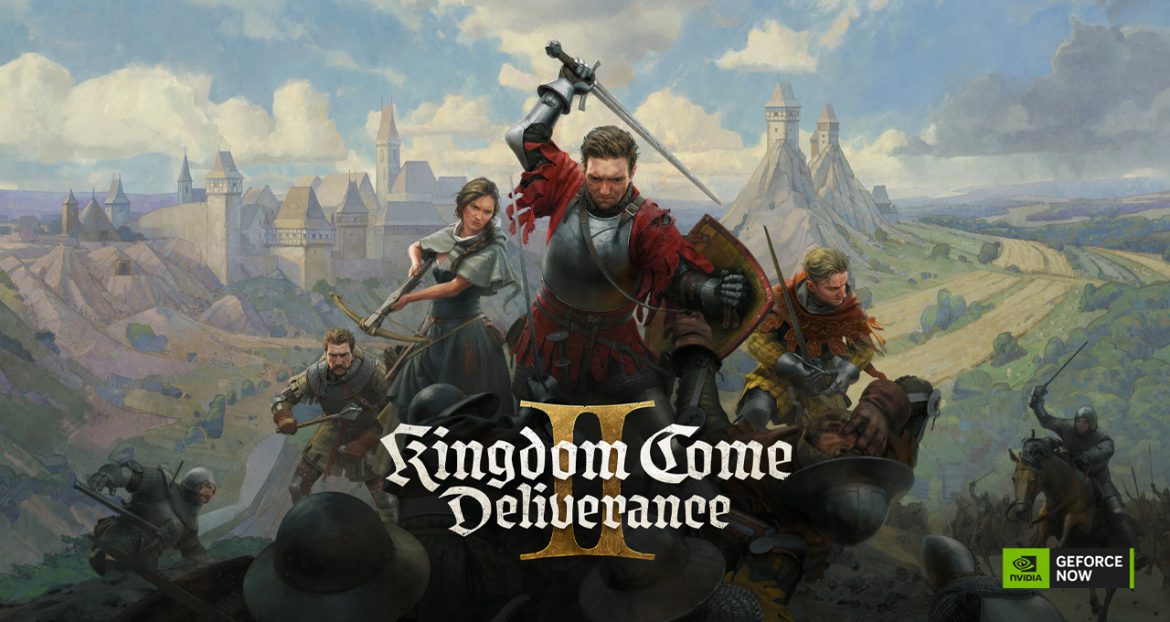TL;DR
Kingdom Come: Deliverance II is an exceptional sequel that amps up the realism and depth of its acclaimed predecessor. Dive back into the meticulously recreated 15th-century Bohemia as Henry, where your choices truly matter, shaping nuanced relationships and a sprawling, non-linear story. With vastly improved combat, expanded exploration, a dynamic ecosystem, and stunning CryEngine visuals, it's a historically authentic RPG that truly immerses you. While minor bugs exist, Warhorse Studios has already delivered a deeply compelling experience that sets a new bar for realistic role-playing. Discover if this historically rich adventure is for you – read on for the full deep dive!
Kingdom Come: Deliverance II is the sequel to the acclaimed role-playing game from 2018, developed by Warhorse Studios. The original title resonated deeply with players, lauded for its profound realism and immersive gameplay. This sequel builds upon that foundation, delivering a compelling experience that arguably surpasses expectations and sets a new standard for the genre.
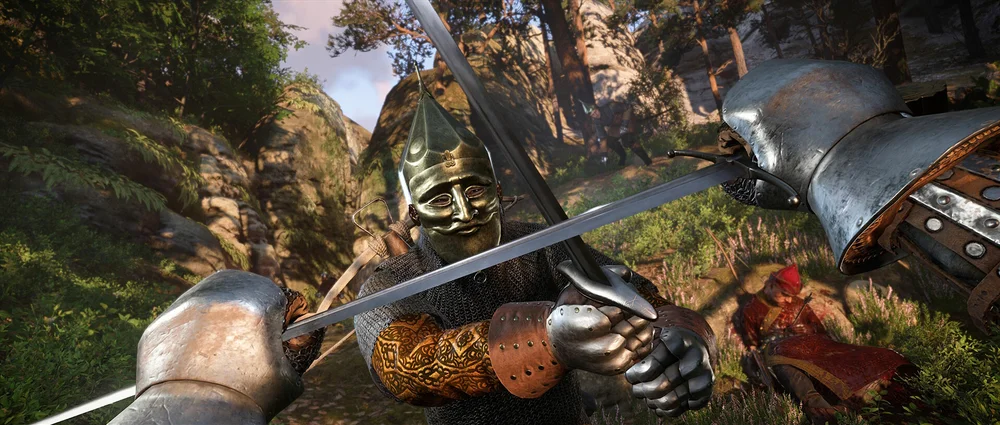
Continuing the narrative of the first game, Kingdom Come: Deliverance II places players once again in the role of Henry, now serving as a bodyguard to a powerful lord. Eschewing traditional fantasy elements, the game grounds itself in historical accuracy. The meticulously crafted dialogues provide significant player agency, ensuring that each choice carries weight. The script, penned by the game’s director, Daniel Vávra, spans thousands of pages, contributing to the depth of the narrative. Character relationships are more nuanced than before, evolving into alliances or rivalries based on player decisions.
With an expanded world, refined mechanics, and a more captivating story, Warhorse Studios elevates its already ambitious vision. The game emphasizes historical authenticity, ensuring that aspects such as armor, weaponry, cuisine, and daily life accurately reflect the late Middle Ages.
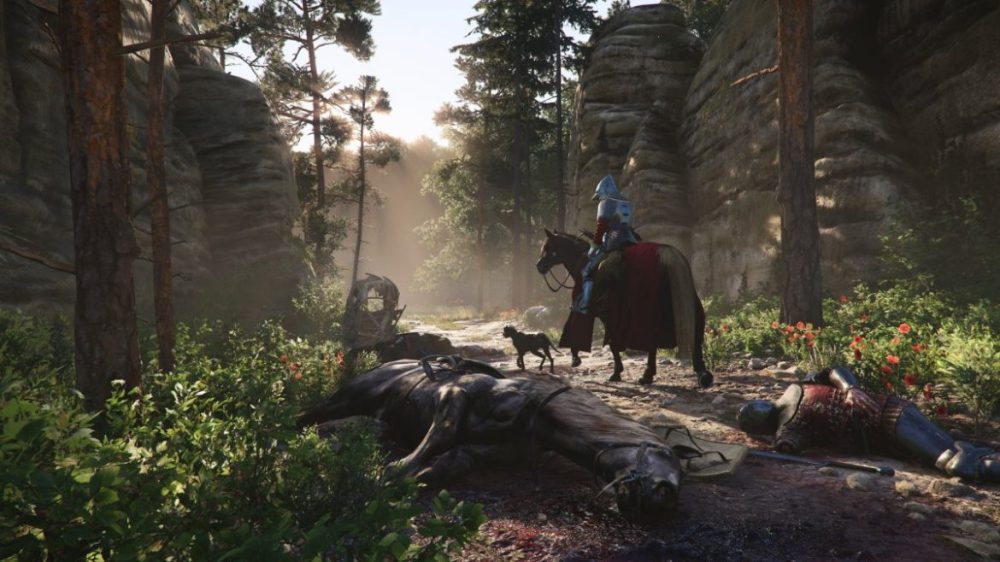
The game utilizes a non-linear narrative structure, allowing player decisions to shape the unfolding plot. Factions, alliances, and personal relationships exert a greater influence than in the previous installment, successfully conveying the feeling of participating in a larger historical context. Furthermore, the game features a range of side quests, often of comparable quality to the main storyline, with impactful consequences within the game world.
Bohemia, the game’s setting, is rendered with unprecedented detail. Leveraging the updated CryEngine engine, the world is more vibrant and detailed than ever before. Cities like Kutná Hora are recreated with impressive historical accuracy, and each village, forest, and castle feels authentically realized. The dynamic day and night cycle influences gameplay, with shops closing at night and character routines varying according to the time of day.
A key strength of the game lies in its dynamic ecosystem. NPCs exhibit realistic routines and react naturally to player actions. For instance, antagonizing a merchant family can affect prices across an entire city, and committing crimes can lead to rumors spreading. This realism contributes to a believable and immersive world. The game also incorporates an advanced weather system where rain, snow, and fog impact visibility and movement, adding a strategic layer to both combat and exploration.
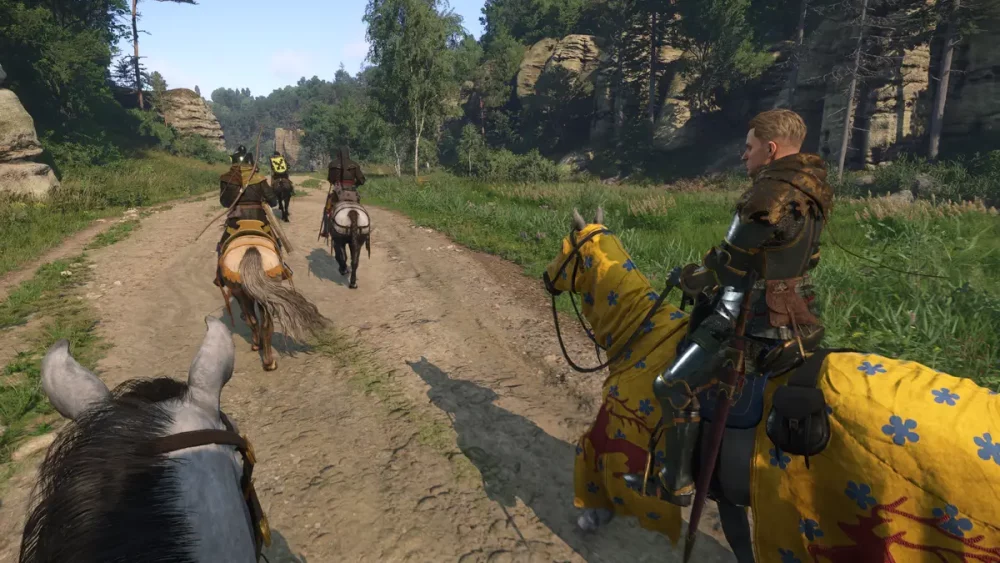
The combat system has been significantly refined since the first game. Realistic, physics-based sword duels return with smoother animations and improved responsiveness. The addition of new weapons, such as crossbows and early firearms, combined with mounted combat, adds strategic depth. Weapon and armor degradation necessitates regular maintenance to ensure effectiveness. Neglecting equipment upkeep can result in a considerable disadvantage during encounters.
An improved stealth system allows players to exploit darkness and distractions to avoid confrontations. For those preferring a diplomatic approach, the expanded dialogue system offers options for resolving conflicts peacefully. Enhanced horse riding mechanics feature horses with their own AI, reacting realistically to the environment and exhibiting fatigue.
The soundtrack, composed by Jan Valta and Adam Sporka, seamlessly blends grand orchestral arrangements with subtle, atmospheric melodies. The sound design is also more detailed than in the previous game, encompassing everything from clashing swords and crackling campfires to the patter of rain on armor. The dynamic adaptation of the music enhances immersion.
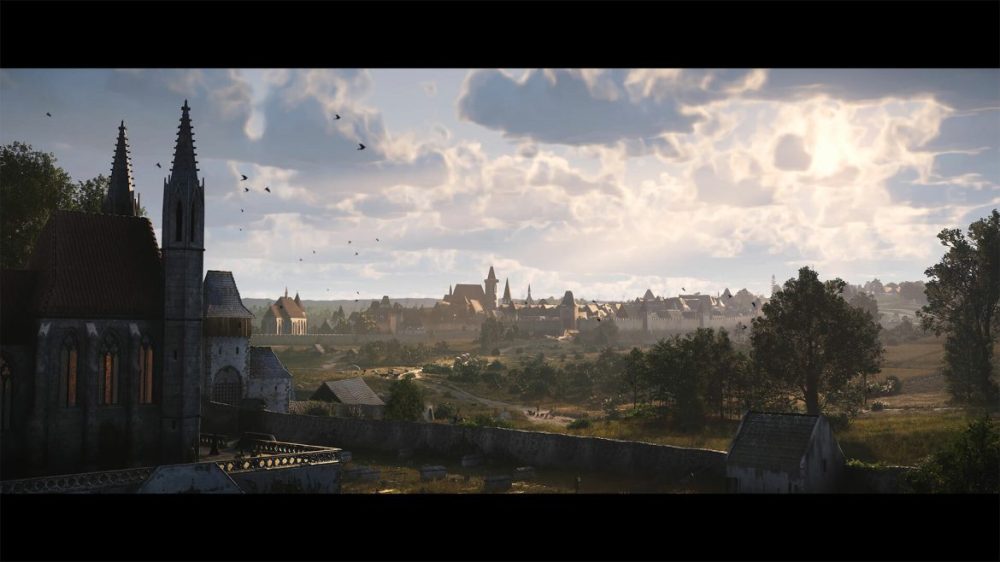
Despite its technical achievements, the game exhibits some minor bugs, a characteristic shared by its predecessor. NPCs may occasionally become stuck, and physics anomalies can occur. However, Warhorse Studios has already deployed several patches to address many of these issues, with further improvements planned. Notwithstanding these minor issues, the game represents a significant technical accomplishment, successfully blending open-world design, realism, and engaging gameplay in a unique and compelling manner.
Conclusion Kingdom Come: Deliverance II is an excellent sequel that builds upon the strengths of the original while addressing many of its weaknesses. Its historical authenticity, compelling narrative, and improved gameplay mechanics make it a standout role-playing game. It is a must-have for enthusiasts of historically accurate games and realistic RPGs. Despite some minor technical issues, this is an experience that fans of the genre should not overlook.
Plaion provided a review code for this game. The provision of materials does not influence our editorial assessments.
